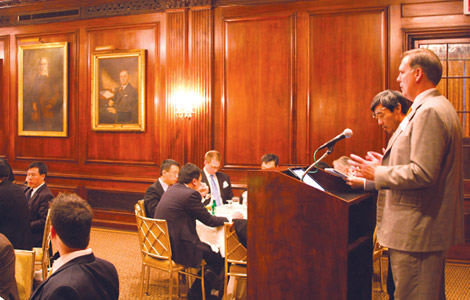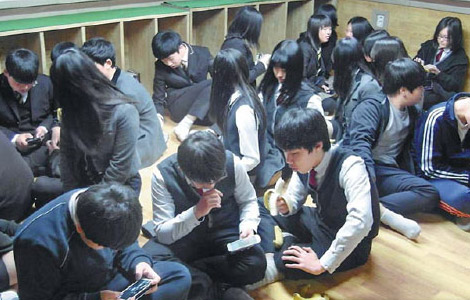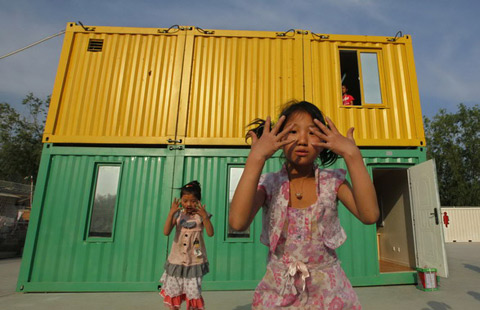Beijing must help win the global battle on climate
Updated: 2014-04-01 11:02
By Michael Barris in New York (China Daily USA)
|
||||||||
China has the power to tip the balance in the world's battle against global warming, says a US environmental policy adviser.
"China has tremendous intellectual and practical resources at its disposal that they are using to address these problems," said Paula DiPerna, the New York-based special adviser for North America for the Carbon Disclosure Project (CDP), an arm of UK-based CDP, a nonprofit organization which collects information on greenhouse gas emissions at publicly traded companies.
DiPerna played a role in shaping China's environmental history by helping to establish the pioneering Tianjin Climate Exchange - a domestic carbon market cap-and-trade plan. Tianjin Climate Exchange is a joint venture between Chicago Climate Exchange, the municipal government of Tianjin and the asset management unit of PetroChina, the country's largest oil and gas producer.
Under cap-and-trade programs, companies commit to lowering their greenhouse gas emissions by buying credits to cover any carbon dioxide emitted above allocated quotas. There is no legal means of forcing companies to participate.

China is the world's biggest source of climate-changing carbon emissions and widely expected to overtake the US as the world's largest economy by decade's end.
"My prediction would be they will have a cap-and-trade system in place well before the United States does on a national basis and it will be absolutely making reductions and absolutely credible," she said Monday in an interview with China Daily.
China is experimenting with numerous cap-and-trade pilot projects, Di Perna said. "But they will knit that all together and they will have a national system very soon and possibly even in time for 2015" - the UN deadline for developing a new global emissions reduction treaty.
"They have tremendous resources in terms of carbon accounting," DiPerna said. "They are the largest producers of solar panels; they are interested in lithium panels.
"It's only a matter of time before China is able to deploy all of its tremendous resources in favor of solving the climate change problem," she said. "And when they are ready to do it, they will do it, in my opinion."
DiPerna said "we have pretty much utterly failed to communicate the upside of dealing with climate change". The economic upside that addressing the climate change challenge would bring would be the "impetus to a complete re-tooling and re-invention of the global economy for the better."
DiPerna made her comments after a report issued on Monday said global warming constitutes a growing threat to the health, economic prospects and food and water sources of billions of people. The latest report from the United Nations' Intergovernmental Panel on Climate Change said the effects of warming are felt everywhere, fueling potential food shortages, natural disasters and raising the risk of wars.
"The world, in many cases, is ill-prepared for risks from a changing climate," the IPCC said following the report's release. More warming increased the chance of harsh, widespread impacts that could be surprising or irreversible, it said. The report projects global warming may cut world economic output by between 0.2 and 2.0 percent a year should mean temperatures rise by 2 degrees Celsius.
The world's "poor and vulnerable" are at the greatest risk from climate change, said Michael Jarraud, secretary-general of the World Meterological Organization.
The effort to combat climate change is hurt by a lack of a cohesive strategy, DiPerna said. A lack of interconnected systems crimps efforts to tackle climate change, she said. "We all understand that climate change touches every aspect of society. But we don't have systems that are interconnected. We have sectoral systems - budgets are still in sectors, we have the department of housing, the department of transportation, the department of agriculture, the department of this or that. We don't have a functioning interdisciplinary system. Even companies are still quite fragmented.
"We have this very big horizontal problem that we attempt to address through systems that are set up vertically. There is a misalignment."

Finally, DiPerna said, there "are too many good ideas. Everybody wants to pursue their own particular priority. The best example is in energy where people are constantly arguing whether solar is better or natural gas is better but natural gas has shortcomings but maybe it should be concentrated solar, or maybe wind, or hydrogen fuel cells.
What leadership would be ideal? "The ideal leadership is probably an international climate change commission that is empowered by the UN to implement agreements, even separate from the day to day governmental challenges.
"It's almost like we need a kind of European Union for the climate."
michaelbarris@chinadailyusa.com
(China Daily USA 04/01/2014 page2)

 Massive earthquake hits Chile
Massive earthquake hits Chile
 Venezuelan anti-govt protestors set on fire in rally
Venezuelan anti-govt protestors set on fire in rally
 Sino-US relations going mainstream
Sino-US relations going mainstream
 Chinese moving into E. Harlem
Chinese moving into E. Harlem
 Two Koreas exchange artillery fire
Two Koreas exchange artillery fire
 World's tallest ferris wheel opens in Las Vegas
World's tallest ferris wheel opens in Las Vegas
 Cherry blossoms in full bloom in Tokyo
Cherry blossoms in full bloom in Tokyo
 US-South Korea joint landing exercises in Pohang
US-South Korea joint landing exercises in Pohang
Most Viewed
Editor's Picks

|

|

|

|

|

|
Today's Top News
M8.2 quake off Chile kills 5
MH370 'unlikely' to hurt ties
Xi's trip builds bridge to Europe
Weibo to list on Nasdaq
Beijing must help win the global battle on climate
Remembering a true hero of WWII
Drone falls in ROK island
We should join hands, Xi tells EU
US Weekly

|

|







